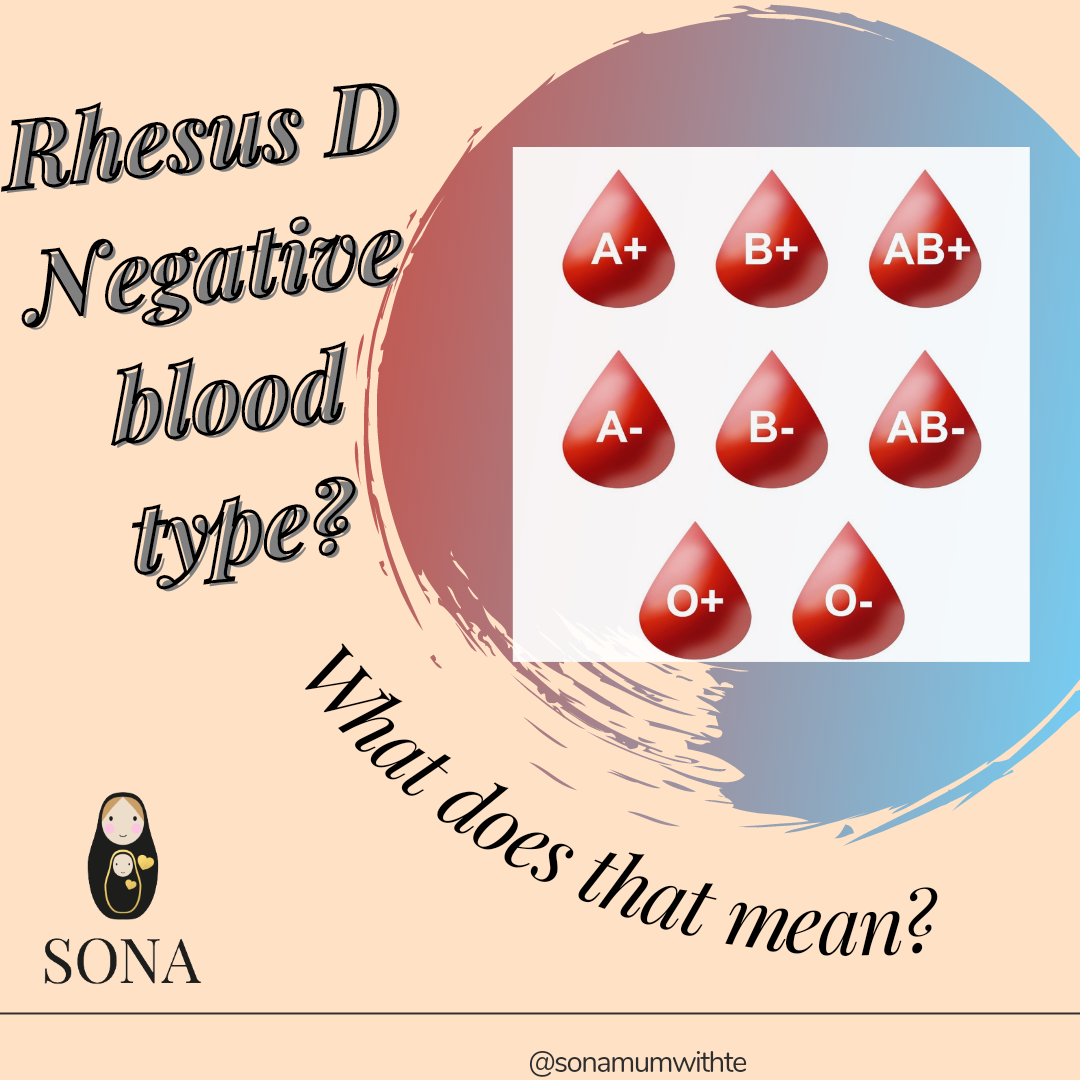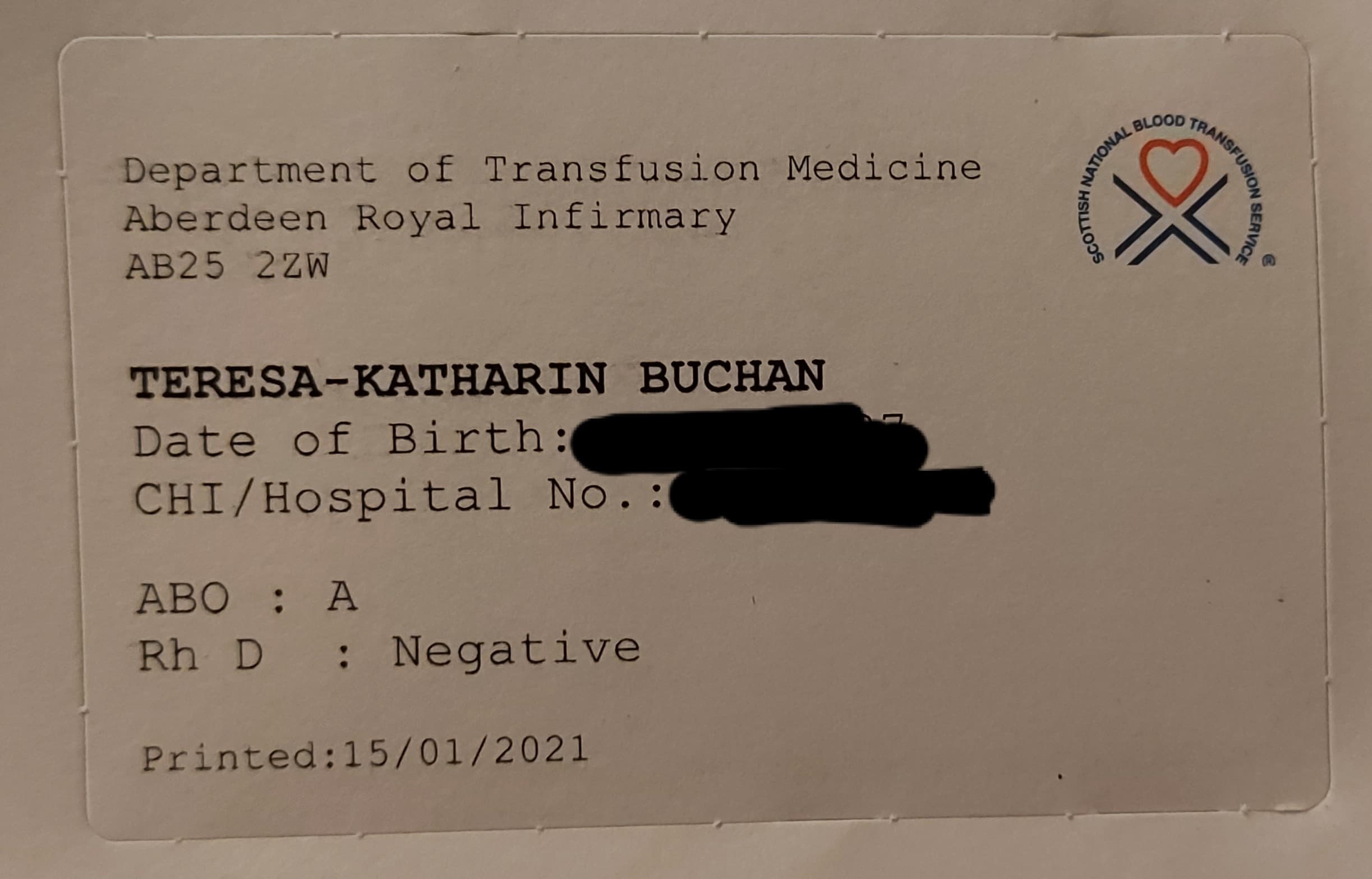Hi all!
Did you know that it is important for your midwife and healthcare workers to identify women who have a RhD Negative blood type?
Unless you are currently pregnant and are a Rhesus negative blood type you may not even be aware of this. Many women don’t know their blood type until their bloods are taken at antenatal appointments during pregnancy.
This is currently on my mind as I’m an A- blood type!
Do you know your blood type?

First of all: Why does your midwife take your bloods during pregnancy? Why is it so important to know the blood group of pregnant women?
Your bloods are taken several times at your antenatal appointments during your pregnancy. It is initially done to determine your blood group (see below) and your bloods are checked regularly for any abnormalities, iron levels and other information.
Mainly the routine bloods are to ensure provision of blood for a transfusion without any delay should it become necessary, e.g. due to an unexpected bleeding during pregnancy or birth.
Secondly knowing a pregnant woman’s blood type is to determine whether they are RhD Positive or Negative.
Only approximately 15% of women in the UK are RhD Negative.
If your blood type is RhD Negative you get issued an identification card from the Department of Transfusion Medicine to carry with you.

Why is it important to identify pregnant women with a RhD Negative blood type?
During a normal pregnancy blood from the baby can enter the mother’s bloodstream. The amounts are small and not felt by the mother. Sometimes when this happens the mother’s body will form antibodies.
These antibodies are harmless to the mother and the majority are harmless to the baby.
However, a few are capable of affecting the baby’s red blood cells. The formulation of Anti-D can only occur in RhD Negative mothers who are carrying a RhD Positive baby.
To put it into a simple explanation: The mother’s body could treat the baby as a foreign object and trigger the immune system in order to fight it.
To prevent this from happening pregnant woman may be given an Anti-D injection during pregnancy.
When is an anti-D immunoglobulin injection necessary?
The anti-D injection is routinely given to women who have previously given birth to a RhD Positive baby.
In a woman’s first pregnancy, when the baby’s blood type is not known yet, Anti-D will be not be given unless there has been a bleeding or injury (see list below).
During subsequent pregnancies women will receive an Anti-D immunoglobulin injection during their antenatal appointments by the midwife.
During any pregnancy, first or subsequent, an Anti-D injection may also be required after:
• a miscarriage
• a threatened miscarriage or abortion
• specific medical procedures (e.g. amniocentesis – tests for Down’s Syndrome and genetic or chromosomal conditions)
• a heavy fall during pregnancy
• abdominal injury (e.g. seat belt injury)
• vaginal bleeding
The Anti-D immunoglobulin should be administered within 72 hours of any of the above events.
If you have any questions about your blood type please consult your midwife or obstetrician.





